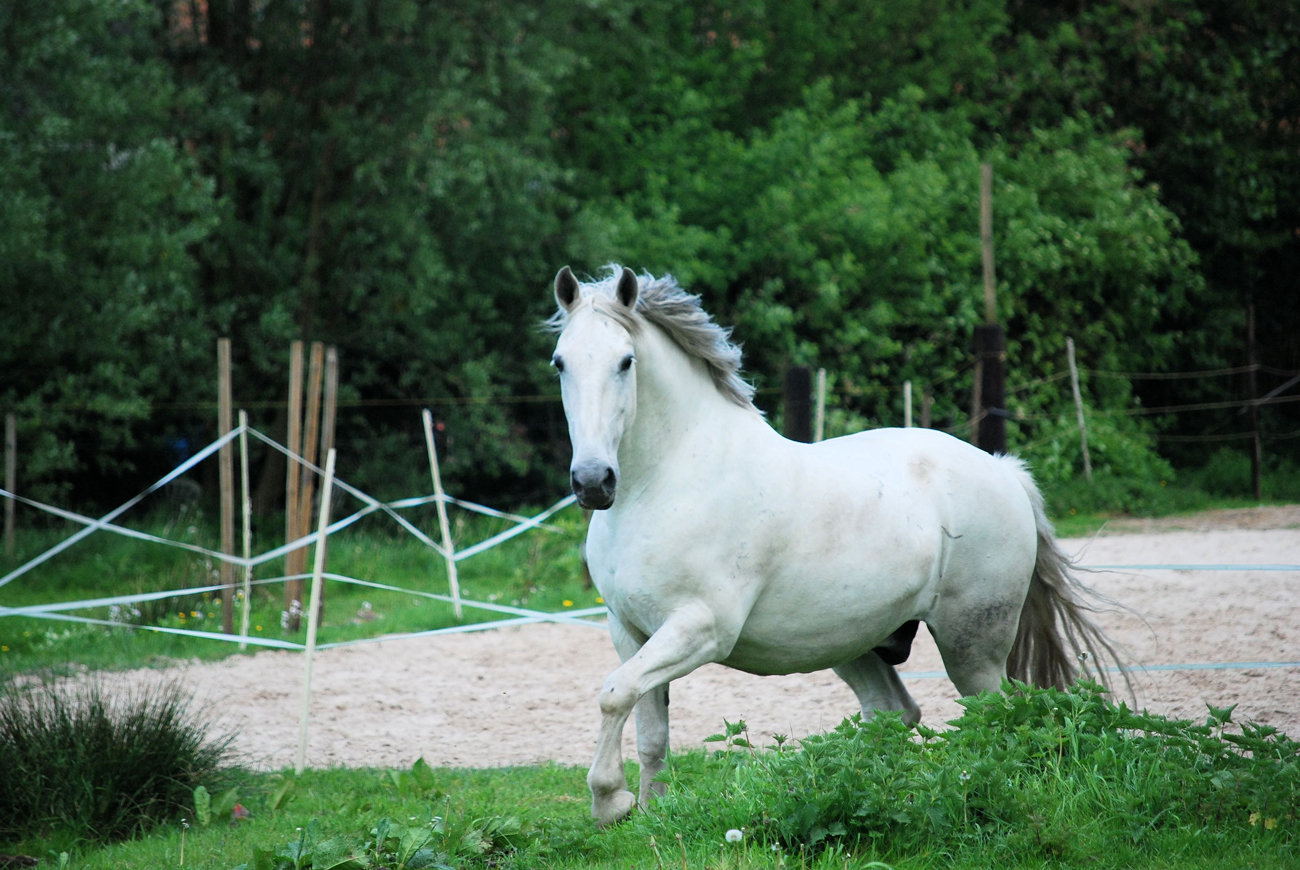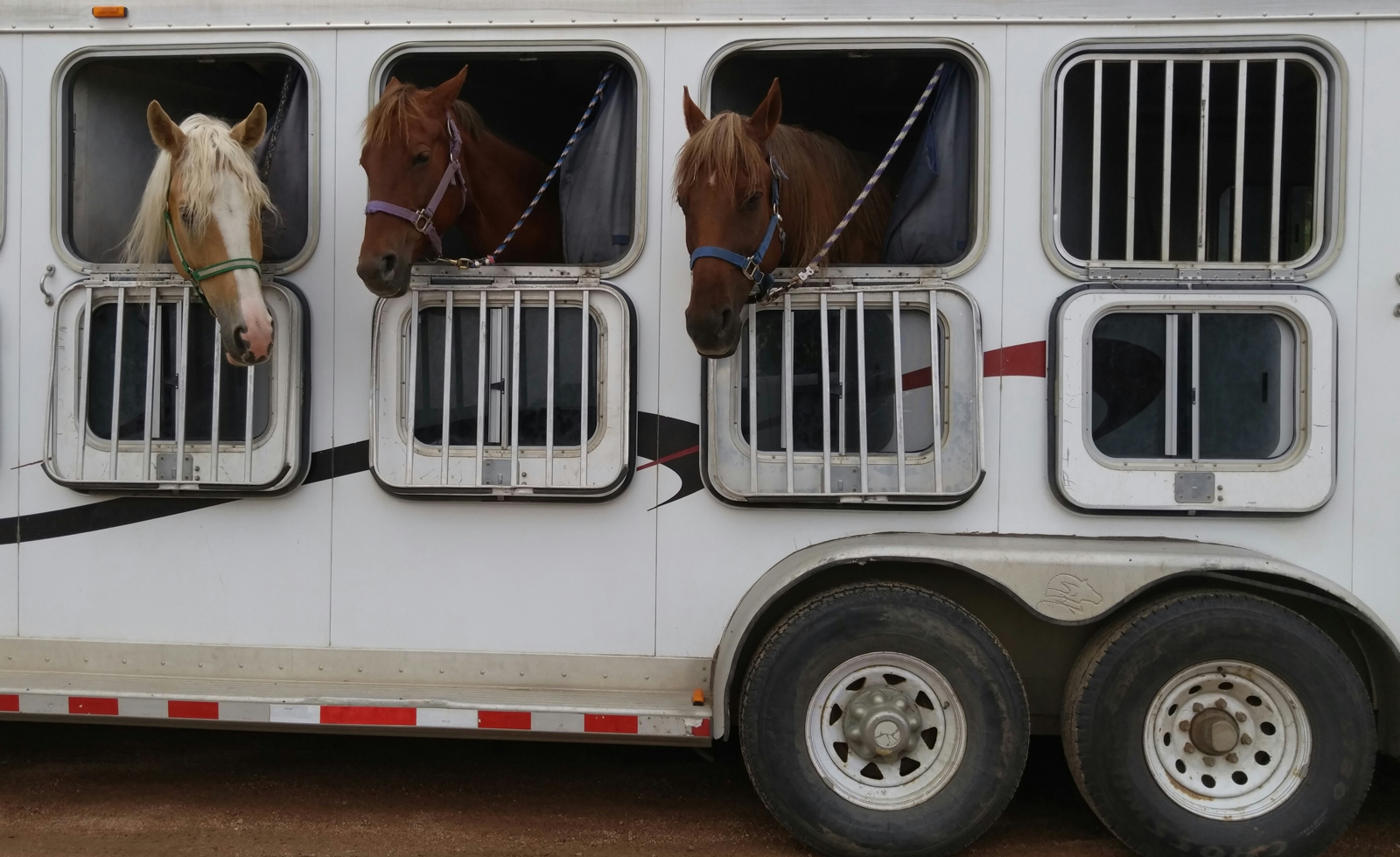Unfortunately, just as in human communities there can sometimes be bullies in the horse world. Despite our equine friend being respectful and well-behaved around us, sometimes this doesn’t translate to their grazing buddies.
It’s upsetting for owners to see their horse bullying or being bullied. Biting, striking, kicking and otherwise making other horses lives unpleasant can have a negative effect on all concerned. So, why do horses bully each other and what can we do to remedy this unwanted behaviour?
Remember that whatever your horse’s behavioural issues, having horse insurance is invaluable to protect them from harm. Just as insurance for a horse trailer is vital to maintain safe transport for them and their equine friends.
Reasons for bullying or aggression
Bullying or aggression towards other horses is a common behavioural issue owners seek help with.
As with most animals, aggression is a normal, natural and sometimes necessary trait for horses. However they’re not an overly aggressive species and tend to live in harmony with others.
While your horse may have had a very comfortable life so far, their natural instincts are still present. These have been developed to protect themselves from predators and to defend their offspring or mates.
Unfortunately, these instincts can lead to problem behaviours in domestic horses.
Horses can bully and behave aggressively for a number of reasons, such as:
- If they feel threatened or frightened. Perhaps as a result of a prior experience.
- If they are in pain. Discomfort can make them less accommodating of other horses.
- If they are frustrated. Perhaps they are bored or feeling irritated. Providing them with some extra enrichment might help.
- As a result of artificial social groups. Your horse can’t choose who they are turned out with. Some horses simply don’t get on.
- As a result of inadequate early socialisation. Horses come from a variety of different places and might have had very different upbringings. If your horse hasn’t had an older horse to show them the ropes they might have learned some bad habits.
- As a result of certain medical conditions or diseases. Aggression can be a symptom of a medical problem. Ask your vet to check there’s nothing wrong with their health.
- Resource guarding. A common source of aggression in domestic horses, this happens when the horse is seeking to control access to limited resources. These could be food, breeding partners, water, space or any number of valued things.
While bullying and aggression can involve chasing, biting, kicking or striking it can be more subtle, like pinned ears or kick threats.
Owners who are not as adept at reading horse behaviour might be oblivious to this – particularly if the owner is away from the field when the bullying happens.
Something worth watching out for is if turn-out blankets are getting damaged. This could be a sign that a field fellow is helpfully grooming the horse, but it could also be a sign of bullying.
In any instance of bullying or aggression, it’s important to find out the cause of the behaviour and deal with that first. Simply trying to stop the behaviour using punishment is unlikely to succeed.

How to remedy bullying and aggression
If you’ve had no luck with identifying the cause of the behaviour and it’s still going on then it might be time to take further steps. Try the following...
- Make sure the horses have plenty of space and the field is not overcrowded.
- Provide enrichment and frequent exercise so the horses have plenty of healthy ways to expend their energy.
- Add an extra pile of food. That way if the bully chases a horse away from one pile there’s always another one to go to.
- Space out food and buckets. Other horses can get away from the bully if they need to.
- Spray a bitter no-chew spray on the other horse’s turn-out blankets. This might help dissuade them from biting.
- Change the horses in the field around. Sometimes a horse needs to be with a more dominant or confident member of the herd to keep them in line.
- Separate the bully from the other horses. Sectioning off part of the field or putting them in another area might be your only option.
- Separate the bullied horse. If one horse is being targeted then put them in a separate field and see if that remedies the behaviour. It might not be a long-term solution but it might help break the cycle of behaviour.
Just as with finding the perfect horse trailer insurance policy, getting some specialist help with the behaviour might be the fastest route to success.
Transporting horses together
Sometimes when horses are moved to another location it’s advised to reduce stress by transporting them with a field friend.
This is obviously unwise if there is evidence of bullying or aggression between the animals. Defra has produced advice for transporting equines that should be followed.
The advice states that horses and ponies must be handled and transported separately if they are:
- Of significantly different sizes or ages. Unless they are accustomed to each other and where separation would cause distress. Mares can also travel with their foals.
- Adult breeding stallions.
- Sexually mature males from females.
- Animals hostile to each other.
- Tied animals from untied animals.

Secure your trailer with Equesure
Even experienced owners can find transporting horses fraught with worries and difficulties. That’s why the team at Equesure are here to take some of the pressure off by finding you the perfect insurance cover for your requirements.
With over 60 years of experience in the equine insurance market, our specialists can find cover for all makes and models of trailer up to the value of £10,000.
Horse trailer insurance policies arranged by Equesure include accidental damage, fire and theft as standard. We can also arrange breakdown cover, which can include home/stable start. Other benefits can include:
- Public liability available up to £1 million
- Replacement hire available in event of total loss
- EU cover included on some policies
- Horse drawn vehicles can also be covered with trailer policy
Get a quick quote for horse trailer insurance today.
Policy benefits and features offered may very between insurance schemes or cover selected and are subject to underwriting criteria. Information contained within this article is accurate at the time of publishing but may be subject to change.





